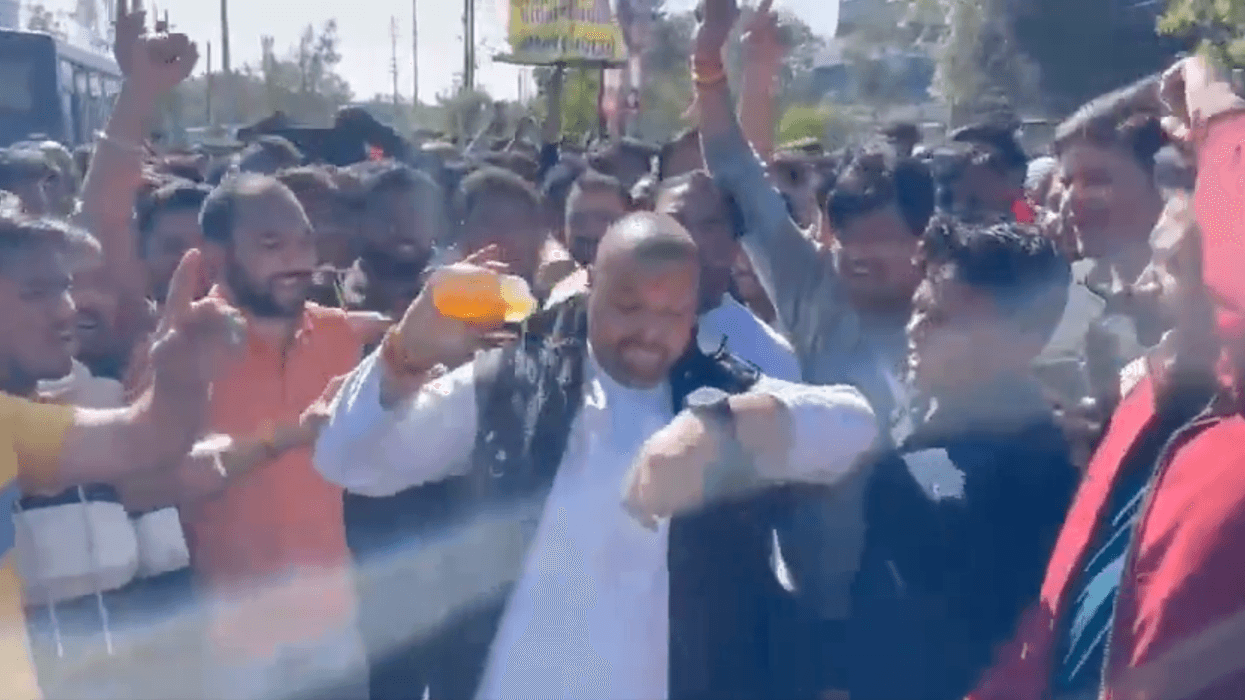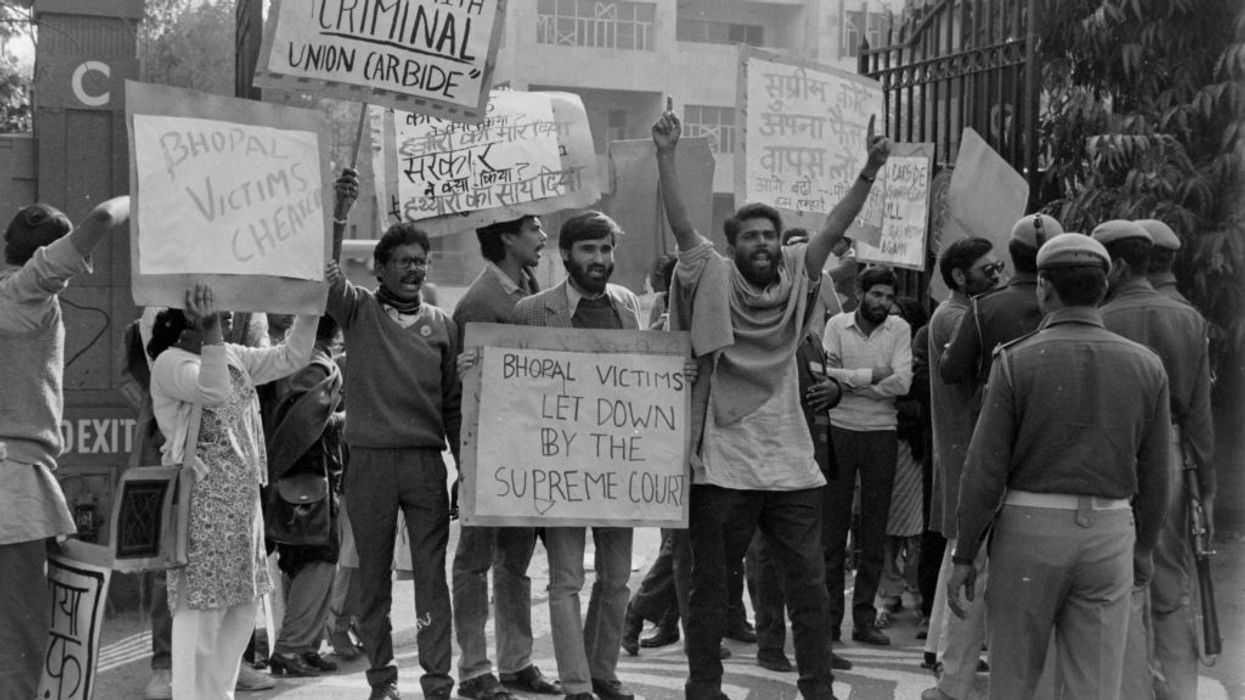Two Protesters Self-Immolate Over Bhopal Toxic Waste Plan in India
The plan to remove more than 370 tons of toxic waste from Bhopal and transport it to another city has been denounced as a "farce and greenwashing publicity stunt."
After more than 370 tons of hazardous waste from the deadliest industrial disaster in history arrived in the town of Pithampur in central India, two men were filmed in the city on Friday dousing themselves in liquid before they were set on fire in an apparent self-immolation protest.
The men poured the flammable liquid on themselves in a crowd of protesters and were then set on fire by another demonstrator.
They were taken to a hospital after the self-immolation and are "safe now," the administrative head of Dhar district, where Pithampur is located, told Agence France-Presse.
Note: The below video contains graphic images.
The protest took place 40 years and one month after a chemical disaster at a factory owned by the American company Union Carbide in Bhopal.
On December 2, 1984, a tank storing the toxic chemical methyl isocyanate, which Union Carbide used to produce pesticides, shattered from its concrete casing—allowing about 40 tons of the deadly gas to drift across the city of more than 2 million people.
The disaster killed roughly 3,500 people in the following days from direct exposure to the poisonous chemical, and 25,000 people are estimated to have died overall as the contamination has been linked to deadly illnesses including cancers, lung disease, and kidney disease.
Large numbers of babies have been born with severe disabilities, to parents affected by the gas leak, and a high rate of stillbirths in the area has been reported.
But Union Carbide—now owned by Dow Chemical—and the Indian government have never carried out an operation to remove all the contamination from Bhopal's groundwater, which has been found to contain levels of carcinogenic chemicals that were 50 times higher than what's accepted by the U.S. Environmental Protection Agency.
Dow Chemical has denied liability for the accident, citing a 1989 settlement with the Indian government. The deal also gave about $500 to each person identified as a victim at the time—but nothing was set aside for most people who later developed health problems.
Last month, on the 40th anniversary of the disaster, the Madhya Pradesh high court ordered the government to begin removing the toxic waste and a plan was devised for the transport of more than 370 tons of sealed waste, which would be taken to a plant in Pithampur—150 miles away—and incinerated.
The plan has garnered condemnation from both Pithampur residents and people in Bhopal as well as campaigners who have demanded justice for Bhopal for decades.
The incineration is expected to take six months and to create nearly 1,000 tons of toxic residue, which will be buried in landfills—prompting fears that the damage and public health threats in Bhopal will spread to Pithampur.
The Hindu reported that police used water cannons and batons to disperse some protesters who tried to march toward the facility where the waste was delivered on Wednesday.
In Bhopal, Rachna Dhingra, a coordinator of the International Campaign for Justice in Bhopal, told The Guardian that the plan to move the contamination was a "farce and greenwashing publicity stunt to remove a tiny fraction of the least harmful waste," which had already been placed in containers and moved to a warehouse in 2005.
"There's still 1.2 million tons of poisonous waste leaching into the ground every day that they refuse to deal with," said Dhingra. "We can see for ourselves the birth defects and chronic health conditions. All this does is take the heat off the government and lets the U.S. corporations off the hook."
"It does nothing," said Dhingra, "to help the people in Bhopal who for decades have been seen as expendable."

